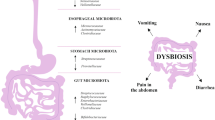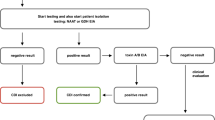Abstract
SER-109 (VOWST™; fecal microbiota spores, live-brpk) is a live biotherapeutic product indicated to prevent the recurrence of Clostridioides difficile infection (CDI) in patients 18 years of age and older following standard of care (SOC) antibacterial treatment for recurrent CDI. It is a purified bacterial spore suspension sourced from healthy donors. As the first oral faecal microbiota product approved for prevention of recurrent CDI, SER-109 is administered as four capsules once daily for three consecutive days. In a well-designed, placebo-controlled, phase III trial (ECOSPOR III), SER-109 significantly reduced the risk of recurrent CDI at 8 weeks post-treatment, with a durable response seen at 6 months post-treatment. Treatment with SER-109 was also associated with rapid and steady improvement in health-related quality of life compared with placebo. SER-109 was generally well tolerated, with a safety profile similar to that of placebo. The most common adverse events were of mild to moderate severity and generally gastrointestinal in nature. Thus, with the convenience of oral administration and lack of necessity for cold storage, SER-109 is a valuable option for preventing further CDI recurrence in adults following antibacterial treatment for recurrent CDI.
Plain Language Summary
Clostridioides difficile is a type of bacteria that can produce toxins leading to infection of the large intestine. Symptoms of C. difficile infection (CDI) range from mild diarrhoea to severe life-threatening sepsis. Treatment is usually antibiotics to kill the toxin-producing bacteria and resolve symptoms. However, antibiotics can disrupt the gut microbiota and leave individuals at risk of CDI recurrence. SER-109 (VOWST™; fecal microbiota spores, live-brpk) is a microbiome therapy containing purified live bacterial spores extracted from donated human faecal matter intended to repair the microbiome. It is given as four oral capsules per day over three consecutive days to prevent the recurrence of CDI in adults following standard antibiotic treatment. In a phase III clinical trial, patients with recurrent CDI who received SER-109 had a significantly lower rate of CDI recurrence at 8 weeks than those who received placebo, and this response was sustained through 6 months. SER-109 was generally well tolerated, and most adverse events were mild or moderate in severity. With the convenience of oral administration and no refrigeration requirements, SER-109 is a valuable option for preventing further CDI recurrence in adults who have received antibiotics for recurrent CDI.

Similar content being viewed by others
References
Fenton C, Kang CN. Consider new therapies for the treatment and prevention of Clostridioides difficile infection. Drugs Ther Perspect. 2023;39:237–42.
Gawey BJ, Khanna S. Clostridioides difficile infection: landscape and microbiome therapeutics. Gastroenterol Hepatol. 2023;19(6):319–28.
Gonzales-Luna AJ, Carlson TJ, Garey KW. Emerging options for the prevention and management of Clostridioides difficile infection. Drugs. 2023;83(2):105–16.
Nagarakanti S, Orenstein R. Treating Clostridioides difficile: could microbiota-based live biotherapeutic products provide the answer? Infect Drug Resist. 2023;16:3137–43.
Buckley AM, Moura IB, Wilcox MH. The potential of microbiome replacement therapies for Clostridium difficile infection. Curr Opin Gastroenterol. 2022;38(1):1–6.
Fitzpatrick F, Skally M, Brady M, et al. European practice for CDI treatment. Adv Exp Med Biol. 2018;1050:117–35.
Johnson S, Lavergne V, Skinner AM, et al. Clinical practice guideline by the Infectious Diseases Society of America (IDSA) and Society for Healthcare Epidemiology of America (SHEA): 2021 focused update guidelines on management of Clostridioides difficile infection in adults. Clin Infect Dis. 2021;73(5):e1029–44.
Kelly CR, Fischer M, Allegretti JR, et al. ACG clinical guidelines: prevention, diagnosis, and treatment of Clostridioides difficile infections. Am J Gastroenterol. 2021;116(6):1124–47.
Khanna S, Sims M, Louie TJ, et al. SER-109: an oral investigational microbiome therapeutic for patients with recurrent Clostridioides difficile infection (rCDI). Antibiotics (Basel). 2022;11(9):1–11.
Blair HA. RBX2660 (REBYOTA®) in preventing recurrence of Clostridioides difficile infection: a profile of its use in the USA. Drugs Ther Perspect. 2023;39:331–8.
Seres Therapeutics Inc. VOWST (fecal microbiota spores, live-brpk) capsules, for oral administration: US prescribing information. 2023. https://dailymed.nlm.nih.gov/dailymed/drugInfo.cfm?setid=99e5a37a-930c-4641-bcdd-7013ec1c15fe. Accessed 31 Jan 2024.
McChalicher CWJ, Lombardo MJ, Khanna S, et al. Manufacturing processes of a purified microbiome therapeutic reduce risk of transmission of potential bacterial pathogens in donor stool. J Infect Dis. 2023;228(10):1452–5.
McChalicher C, Abdulaziz A, Zhou SS, et al. Manufacturing process of SER-109, a purified investigational microbiome therapeutic, reduces risk of coronavirus transmission from donor stool. Open Forum Infect Dis. 2022;9(9):1–3.
Bryant JA, Diao LY, O’Brien EJ, et al. Rapid conversion of primary to secondary bile acids in subjects with recurrent Clostridioides difficile infection (CDI) following SER-109, an investigational microbiome therapeutic [abstract no. 809]. Gastroenterology. 2021;160(6):S-168.
Bryant JA, Vulic M, Desjardins C, et al. Impact of SER-109, an investigational microbiome therapeutic, on stool fatty acid metabolites in a phase 3 randomized trial (ECOSPOR III) for treatment of recurrent Clostridioides difficile infection (CDI) [abstract no. 110]. Gastroenterology. 2022;162(7):S-21.
Desjardins C, Bryant JA, Walsh E, et al. Engraftment of investigational microbiome therapeutic SER-109 is durable through 24 weeks in a randomized trial (ECOSPOR III) for the treatment of recurrent Clostridioides difficile infection [abstract no. Su1606]. Gastroenterology. 2022;162(7):S-650.
Feuerstadt P, Louie TJ, Lashner B, et al. SER-109, an oral microbiome therapy for recurrent Clostridioides difficile infection. N Engl J Med. 2022;386(3):220–9.
McGovern BH, Ford CB, Henn MR, et al. SER-109, an investigational microbiome drug to reduce recurrence after Clostridioides difficile infection: lessons learned from a phase 2 trial. Clin Infect Dis. 2021;72(12):2132–40.
Hasson B, Kraft C, Pardi D, et al. Comparability of gastrointestinal microbiome profiles in patients with first or multiply recurrent Clostridioides difficile infection: implications for treatment [abstract]. In: American Society for Microbiology (ASM) Microbe. 2023.
Khanna S, Pardi DS, Kelly CR, et al. A novel microbiome therapeutic increases gut microbial diversity and prevents recurrent Clostridium difficile infection. J Infect Dis. 2016;214(2):173–81.
Sims MD, Khanna S, Feuerstadt P, et al. Safety and tolerability of SER-109 as an investigational microbiome therapeutic in adults with recurrent Clostridioides difficile infection: a phase 3, open-label, single-arm trial. JAMA Netw Open. 2023;6(2):1–13.
Cohen SH, Louie TJ, Sims M, et al. Extended follow-up of microbiome therapeutic SER-109 through 24 weeks for recurrent Clostridioides difficile infection in a randomized clinical trial. JAMA. 2022;328(20):2062–4.
Berenson CS, Lashner B, Korman L, et al. Prevalence of comorbid factors in patients with recurrent Clostridioides difficile infection in ECOSPOR III, a randomized trial of an oral microbiota-based therapeutic. Clin Infect Dis. 2023;77(11):1504–10.
Kraft CS, Lombardo MJ, Louie T, et al. Characterization of ribotypes among study participants in a phase 3 trial of investigational microbiome therapeutic SER-109 to reduce recurrent Clostridioides difficile infection [abstract plus poster 5766]. In: World Microbe Forum. 2021.
Garey KW, Jo J, Gonzales-Luna AJ, et al. Assessment of quality of life among patients with recurrent Clostridioides difficile infection treated with investigational oral microbiome therapeutic SER-109: secondary analysis of a randomized clinical trial. JAMA Netw Open. 2023;6(1): e2253570.
Huang ES, Lashner B, Sims M, et al. Durability of the clinical response to SER-109, an investigational oral microbiome therapeutic, in a phase 3 open-label trial (ECOSPOR IV) in patients with recurrent Clostridioides difficile infection [abstract no. 694]. Gastroenterology. 2023;164(6 Suppl):S-140.
Lashner B, von Moltke L, De A, et al. Safety and efficacy of fecal microbiota spores, live-brpk (formerly SER-109) in older patients with recurrent Clostridioides difficile infection: findings from an integrated analysis of phase 3 trials [abstract no. S77]. Am J Gastroenterol. 2023;118(12S):S21.
US FDA. Clinical review memo: VOWST. 2022. https://www.fda.gov/media/168274/download. Accessed 31 Jan 2024.
Deeks ED. Bezlotoxumab: a review in preventing Clostridium difficile infection recurrence. Drugs. 2017;77(15):1657–63.
Chopra T. A profile of the live biotherapeutic product RBX2660 and its role in preventing recurrent Clostridioides difficile infection. Expert Rev Anti Infect Ther. 2023;21(3):243–53.
Orenstein R. The role of microbiome-based therapeutics in Clostridioides difficile infection: durable, long-term results of RBX2660. Infect Dis Ther. 2023;12(1):1–7.
Cohen S, Louie T, Berenson C, et al. Healthcare resource utilization in a phase 3 trial of SER-109 in patients with recurrent Clostridioides difficile infection [abstract]. Antimicrob Steward Healthc Epidemiol. 2022;2(Suppl 1): s73.
Acknowledgments
During the peer review process, the manufacturer of SER-109 was also offered an opportunity to review this article. Changes resulting from comments received were made on the basis of scientific and editorial merit.
Author information
Authors and Affiliations
Corresponding author
Ethics declarations
Funding
The preparation of this review was not supported by any external funding.
Authorship and Conflict of Interest
Hannah Blair is a salaried employee of Adis International Ltd/Springer Nature, and declares no relevant conflicts of interest. All authors contributed to this article and are responsible for its content.
Ethics approval, Consent to participate, Consent to publish, Availability of data and material, Code availability
Not applicable.
Additional information
The manuscript was reviewed by: J. M. Blondeau, Department of Clinical Microbiology, Royal University Hospital, Saskatchewan Health Authority and University of Saskatchewan, Saskatoon, SK, Canada; K. W. Garey, College of Pharmacy, University of Houston, Houston, TX, USA; E. J. C. Goldstein, Infectious Diseases, RM Alden Research Laboratory, Santa Monica University of California, Santa Monica, CA, USA.
Supplementary Information
Below is the link to the electronic supplementary material.
Rights and permissions
Springer Nature or its licensor (e.g. a society or other partner) holds exclusive rights to this article under a publishing agreement with the author(s) or other rightsholder(s); author self-archiving of the accepted manuscript version of this article is solely governed by the terms of such publishing agreement and applicable law.
About this article
Cite this article
Blair, H.A. SER-109 (VOWST™): A Review in the Prevention of Recurrent Clostridioides difficile Infection. Drugs 84, 329–336 (2024). https://doi.org/10.1007/s40265-024-02006-7
Accepted:
Published:
Issue Date:
DOI: https://doi.org/10.1007/s40265-024-02006-7




